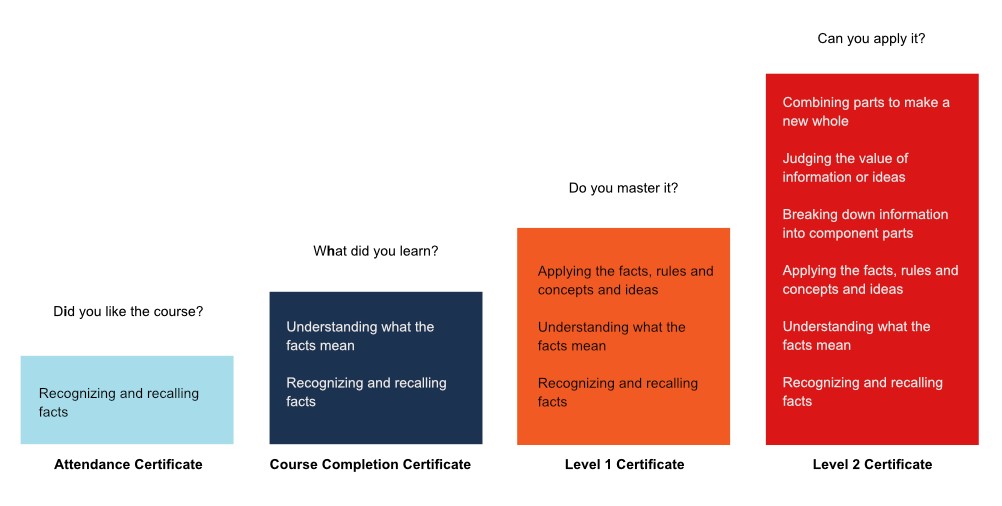I have a few suggestions after having attended a number of Daily Study Groups and online courses at the Wolfram-U.
The section "Get Certified" on the Wolfram-U page: https://www.wolfram.com/wolfram-u/ is a bit confusing and may benefit from more context, for instance (my own example FAQ):
What is certification?
Wolfram-U certificate programs are a series of courses designed to develop and enhance critical Wolfram Language programming skills needed to succeed in a number of computational subject areas. For example there are certification programs available for e.g. the Wolfram Language, Probability, Multiparadigm Data Science or Calculus. Find a computational subject area that meets your specific needs to start a Wolfram-U certification program. The certification programs are organized by difficulty i.e. from Beginner, Intermediate to Advanced.
What different types of certifications are there?
Wolfram-U offers four types of certificates: Attendance, Course Completion, Level 1 and Level 2 certificates.
What does each certification try to achieve?
Each certificate satisfies certain learning objectives (see picture). I used a combination of Bloom and Kirkpatrick learning taxonomy as an example.

Pre-requisites
Some certifications may be self-contained e.g. Calculus or Algebra, but most programs would benefit the student and the tutor by recommended certification pre-requisites. This is more relevant for higher difficulty level programs or multidisciplinary computational subject areas e.g. Multiparadigm Data Science.
For example the pre-requisites for the following courses may be:
Wolfram Language Programming Fundamentals:
- An Elementary Introduction to the Wolfram Language
Multiparadigm Data Science:
- Wolfram Language Programming Fundamentals
At last, I am a big advocate for a Wolfram-U course completion page for each user with a Wolfram ID (account) where we as users can access what course we completed, what type of certificates we earned and the course load (hrs) for each course.